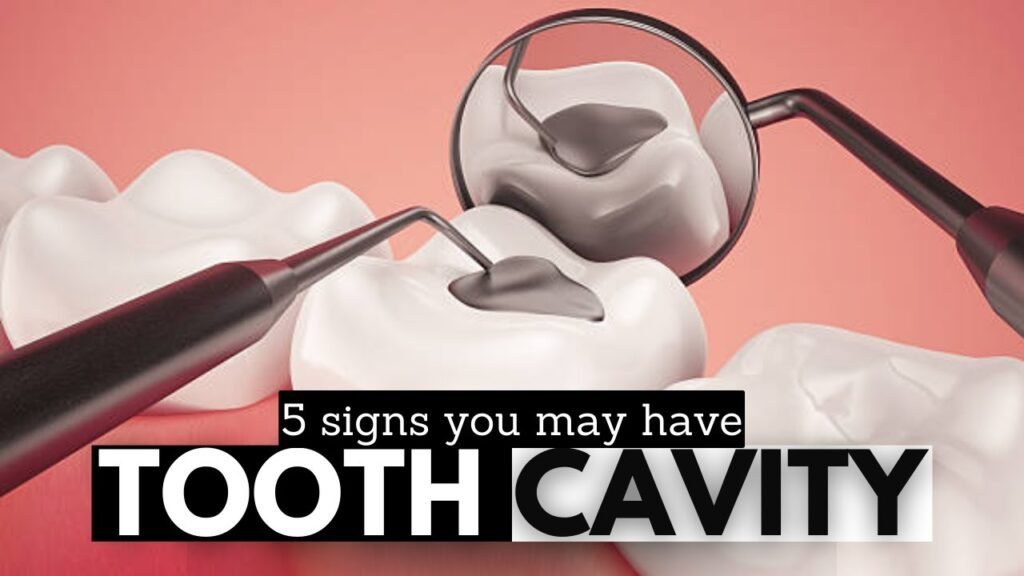Understanding the Consequences of Having a Cavity

A cavity may seem like a minor issue, but if left untreated, it can lead to serious dental problems. From tooth sensitivity to tooth decay, a cavity can cause discomfort and affect your overall oral health. In this article, we will explore what happens if you have a cavity and why it's crucial to address it promptly. Stay tuned to learn how to prevent and treat cavities for a healthy smile!
Can a cavity heal without treatment?
Unfortunately, a cavity cannot go away on its own once it has fully formed. However, there are steps you can take to prevent further damage and even reverse early-stage cavities. Regular brushing with fluoride toothpaste can help halt the progression of a cavity, but once it has become established, professional dental treatment is necessary to fully address the issue. It's important to address cavities early on to avoid more extensive and costly dental procedures in the future.
In conclusion, while it may be possible to reverse early-stage cavities with proper oral hygiene, once a cavity has formed, it will not go away on its own. Seeking professional dental care is the best course of action to prevent further damage and maintain good oral health.
How should I handle a cavity?
If you suspect you have a cavity, it's crucial to schedule an appointment with a dentist promptly. Delaying treatment can lead to more severe issues, such as tooth abscesses and heightened discomfort, ultimately resulting in more extensive and expensive procedures. Prioritizing your oral health by seeking professional care promptly can prevent further complications and ensure a healthier smile in the long run.
Is having a cavity bad?
Having a cavity may not seem like a big deal at first, but it can actually have serious consequences if left untreated. Cavities can lead to tooth decay, which can ultimately result in tooth loss. Not only that, but ignoring a cavity can end up costing you more money in the long run to repair or replace the damaged tooth.
Recognizing a cavity early on is crucial in order to prevent it from becoming a bigger issue. If you've never had a cavity before, it's important to know the signs and symptoms to look out for. Regular dental check-ups can also help catch cavities in their early stages, allowing for prompt treatment and preventing further damage to your teeth.
So, is it bad to have a cavity? The answer is yes, especially if left untreated. By being proactive about your oral health and knowing how to spot a cavity, you can prevent more serious complications down the road. Don't wait until it's too late – take care of your teeth and address cavities promptly to maintain a healthy and beautiful smile.
Unpacking the Impact: A Deep Dive into Cavities
Cavities are not just a minor inconvenience; they can have a significant impact on our overall health. From causing toothaches and sensitivity to leading to more serious issues like infections and abscesses, cavities can wreak havoc on our oral health if left untreated. By understanding the causes of cavities, such as poor oral hygiene and sugary diets, we can take proactive steps to prevent them. Regular dental check-ups, proper brushing and flossing techniques, and a balanced diet can all help in the fight against cavities. Ultimately, the key to maintaining a healthy smile lies in taking a deep dive into cavities and their impact on our oral health.
The Hidden Dangers: Exploring Cavity Consequences
Cavities are not just a minor inconvenience. The hidden dangers of untreated cavities can lead to serious consequences for your oral health. Without proper treatment, cavities can progress to cause tooth decay, infection, and even tooth loss. It's important to address cavities as soon as they are detected to prevent these potential consequences.
Neglecting cavities can also have a significant impact on your overall health. Bacteria from untreated cavities can spread to other areas of the body, leading to systemic infections and inflammation. In severe cases, this can contribute to the development of chronic health conditions such as heart disease and diabetes. By exploring the hidden dangers of cavities, we can better understand the importance of preventive dental care and early intervention to protect our oral and overall health.
Regular dental check-ups and good oral hygiene practices are crucial in preventing the hidden dangers of cavities. By maintaining a healthy oral care routine, including brushing and flossing daily and visiting your dentist regularly, you can minimize the risk of developing cavities and the potential consequences that come with them. It's important to be proactive in addressing cavities to protect your oral health and overall well-being.
From Decay to Damage: The Truth About Cavities
Cavities, often overlooked as a minor inconvenience, can actually lead to serious damage if left untreated. What may seem like a small decay on the surface of a tooth can quickly escalate into a much larger issue, causing pain, infection, and even tooth loss. From decay to damage, the truth about cavities is that they should not be taken lightly.
It is important to address cavities promptly to prevent further deterioration and potential complications. Regular dental check-ups and proper oral hygiene are key in maintaining a healthy smile and preventing cavities from wreaking havoc on your teeth. Remember, what starts as decay can quickly escalate into irreversible damage – so don't wait until it's too late to take action against cavities.
In conclusion, it is essential to address cavities as soon as possible to prevent further dental issues. Ignoring a cavity can lead to more significant problems, such as tooth decay, infection, and even tooth loss. It is crucial to schedule regular dental check-ups and maintain good oral hygiene to detect and treat cavities early on. By taking proactive measures, individuals can preserve their oral health and avoid the potential complications associated with untreated cavities.